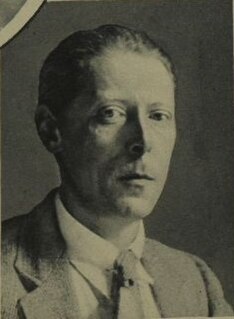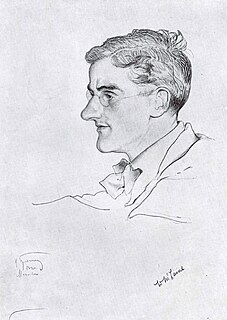Related Research Articles

Rajani Palme Dutt, generally known as R. Palme Dutt, was a leading journalist and theoretician in the Communist Party of Great Britain.
Harry Pollitt was a British politician who served as the head of the trade union department of the Communist Party of Great Britain and the General Secretary of the party.

Cecil John L'Estrange Malone was a British politician and pioneer naval aviator who served as the United Kingdom's first Communist member of parliament.
Andrew Rothstein was a British journalist. A member of the Communist Party of Great Britain (CPGB), Rothstein was one of the leading public faces of the British Communist movement, serving as a member of the CPGB's political apparatus and through a series of publications and translations of Marxist-related topics.

The Campbell Case of 1924 involved charges against a British communist newspaper editor, J.R. Campbell, for alleged "incitement to mutiny" caused by his publication of a provocative open letter to members of the military. The later decision of the government of Prime Minister Ramsay MacDonald to suspend prosecution of the case ostensibly due to pressure from backbenchers in his Labour Party proved instrumental in bringing down the short-lived first Labour government.

Albert Samuel Inkpin was a British communist and the first General Secretary of the Communist Party of Great Britain (CPGB). He served several terms in prison for political offences. In 1929 he was replaced as head of the CPGB and made head of the party's Friends of Soviet Russia organisation, a position he retained until his death.
Alfred Augustus Watts (1862–1928), also known as A. A. Watts, was a British communist.

John Ross Campbell MM, best known as J. R. Campbell and also as Johnny Campbell, was a British communist activist and newspaper editor. Campbell is best remembered as the principal in the so-called Campbell Case. In 1924, Campbell was charged under the Incitement to Mutiny Act for an article published in the paper Workers' Weekly. Campbell called on British soldiers to "let it be known that, neither in the class war nor in a military war, will you turn your guns on your fellow workers, but instead will line up with your fellow workers in an attack upon the exploiters and capitalists."

Thomas Quelch (1886–1954) was a British journalist and the son of veteran Marxist Harry Quelch. a member of the British Socialist Party in the early part of the 20th century, becoming a communist activist in Great Britain in the 1920s.

The British Socialist Party (BSP) was a Marxist political organisation established in Great Britain in 1911. Following a protracted period of factional struggle, in 1916 the party's anti-war forces gained decisive control of the party and saw the defection of its pro-war right wing. After the victory of the Bolshevik Revolution in Russia at the end of 1917 and the termination of World War I the following year, the BSP emerged as an explicitly revolutionary socialist organisation. It negotiated with other radical groups in an effort to establish a unified communist organisation, an effort which culminated in August 1920 with the establishment of the Communist Party of Great Britain. The youth organisation the Young Socialist League was affiliated with the party.

The Communist Party of Great Britain (CPGB) was the largest communist party in Great Britain between 1920 and 1991, although it never became a mass party like those in France and Italy. Founded in 1920 by the merger of several smaller Marxist parties, the party gained the support of many socialist organisations and workers' committees during the period after World War I and the Russian October Revolution. Many miners joined the party through 1926 and 1927 after the General Strike of 1926. In 1945, two of the party's MPs won seats in the general election. From 1945 to 1956, the party was at the height of its influence. It experienced its greatest loss of membership after the 1956 Hungarian Revolution. After the dissolution of the Soviet Union in 1991, the party's Eurocommunist leadership decided to disband the party, establishing the Democratic Left think tank. The anti-Eurocommunist faction had launched the Communist Party of Britain in 1988.
Walter Thomas Leo Tapsell was a British communist activist, known as a leading figure in the British Battalion during the Spanish Civil War.
Joseph James Vaughan was a British politician.
Jack Villiers Leckie was a Scottish communist activist.
John Mahon was a British communist political activist.

William McLaine (1891–1960) was an engineer, Marxist and trade union activist.

Far-left politics in the United Kingdom have existed since at least the late 19th century, with the formation of various organisations following ideologies such as Marxism, revolutionary socialism, communism, anarchism and syndicalism.
George Peet was a British communist activist and trade unionist.
William James Munro was a British trade unionist.
Edgar Thoreau Whitehead was a British political activist, who served on the executive of the Communist Party of Great Britain but later became a fascist.